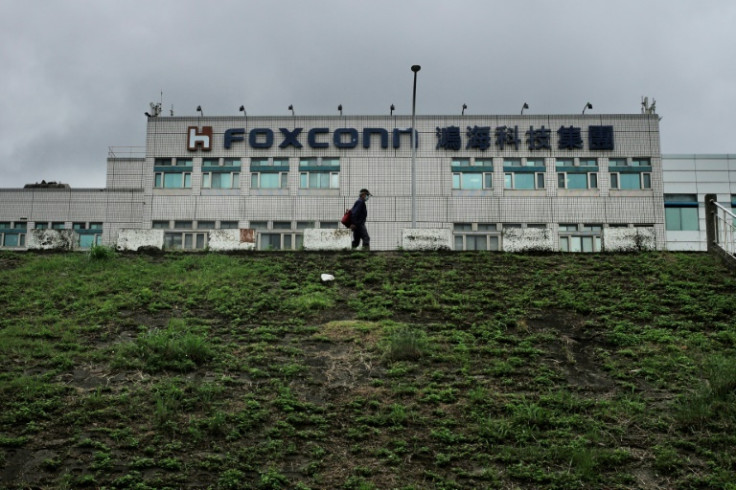
Taiwanese tech giant Foxconn on Wednesday reported a six percent jump in net profit for the second quarter of the year, driven by strong growth in demand for artificial intelligence servers.
Also known by its official name Hon Hai Precision Industry, Foxconn is the world's largest contract electronics manufacturer and assembles devices for major tech companies, most notably Apple's iPhones.
It said Wednesday that net profit for April-June rose to NT$35.05 billion (US$1.08 billion) from NT$33 billion in the same period last year.
Revenues for the second quarter increased 19 percent on-year to NT$1.55 trillion, while documents released by Foxconn ahead of an earnings call showed that income from AI servers surged 60 percent from the previous quarter.
"The performance of AI servers was more robust than expected and drove revenue growth of the group to be better-than-expected," spokesman James Wu said during the call.
The figures represent the fourth consecutive quarter of profit growth for the firm as it rides a wave of demand for generative AI -- following the runaway popularity of products such as ChatGPT since it launched two years ago.
Wu said Foxconn was expecting operations to "gradually heat up" as the firm enters the third quarter, traditionally a peak season.
"In the first half of this year, the revenue of AI servers more than doubled compared to the same period last year. In the second half of the year, we expect AI servers will continue to be better quarter by quarter," he added.
Foxconn, China's largest private-sector employer, had previously declared ambitions to move beyond electronics assembly, investing significantly to be part of the AI technology market and transition into a "comprehensive situations platform provider".
The firm announced in October it would team up with US chip giant Nvidia to create "AI factories" -- powerful data-processing centres that would drive the production of next-generation products.
It has also sought to diversify its manufacturing supply chain beyond the mainland -- after production was hit by three years of strict Covid restrictions, a bout of industrial unrest and tensions with the United States.
In response to a question about the uncertainty surrounding the upcoming US presidential election, Foxconn's CFO David Huang touted the company's "205 bases across 24 countries in Southeast Asia, Europe, North America and South America".
"We have the flexibility to adjust global producing capacity... In this circumstance, we can meet the needs of different customers and product demand, which is an advantage compared to other competitors," Huang said.







